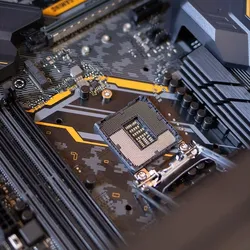
Level 1:
There are some big problems in the world. One is about the Earth getting hotter. This happens because people use things like cars that make the air dirty.
Another problem is all the gadgets and machines. They can be good, but they can also be bad. Sometimes, we use phones too much and forget to play outside.
The last problem is about sickness. Sometimes, a lot of people get very sick from the same thing. This is called a big sickness. We need to stay away from sick people to not get sick too.
These problems are not easy, but we can try to help. We can use less dirty things, play outside, and be careful around sick people. It’s important to talk about these problems and try to make things better.
Level 2:
There are some very important problems. One of these problems is called “climate change.” This happens when the Earth gets hotter because of things like cars and factories.
Another big issue is technology. We have many cool gadgets, but sometimes we use them too much. It’s important to find a balance between using technology and spending time outside.
Lastly, we face challenges with diseases that can spread a lot, like COVID-19. It’s essential to be careful and follow health advice during these times.
These problems are not easy, but we can do our part. We can use technology wisely, reduce pollution, and stay safe during health crises. Talking about these issues and working together can make a big difference in our world.
Full Story:
We’re dealing with some major issues that affect us all. No need for sugarcoating or beating around the bush, let’s get straight to the point about the global challenges we’re facing: Climate change, technology, and pandemics. These aren’t just some distant problems for scientists to ponder; they’re right at our doorstep, knocking louder every day.
Climate Change: A Global Hot Potato
You’ve probably heard the term “climate change” more times than you can count. But what does it really mean? Well, it’s basically Earth’s way of telling us, “Hey, you’re messing things up!” The planet is getting warmer, and it’s not because of some natural cosmic event. Nope, it’s largely because of us – human activities like burning fossil fuels and deforestation.
So, what’s the big deal? Rising temperatures might sound nice if you’re planning a beach vacation, but the reality is far from a day at the seaside. We’re talking about extreme weather events – wildfires, hurricanes, floods – happening more frequently and with greater intensity. Crops are failing, sea levels are rising, and our cozy homes are at risk.
The question is, can we cool things down? Can we turn the tide on climate change? It’s a complex challenge, but we can’t afford to kick the can down the road. We need real solutions, like transitioning to clean energy sources, rethinking our consumption habits, and holding corporations accountable for their environmental impact.
Tech: The Double-Edged Sword
Ah, technology – the one thing that has changed our lives more than anything else in the last few decades. From smartphones to artificial intelligence, it’s all around us, making our lives easier and more complicated at the same time.
Think about it. We can now order pizza with a few taps on our phones, but we’re also bombarded with never-ending notifications and digital distractions. Our personal data is a hot commodity, and privacy seems like a relic of the past.
Moreover, technology has transformed the job market. Automation and AI are replacing traditional jobs, and it’s not clear if there will be enough new opportunities to go around. So, while tech brings convenience, it also brings uncertainty.
The question is, can we find the right balance? Can we harness technology’s power for good without losing ourselves to the digital abyss? It’s a tightrope walk, and we need to figure it out before technology takes over our lives completely.
Pandemics: The Invisible Enemy
COVID-19 taught us one thing for sure – pandemics are not just the stuff of Hollywood movies. They’re real, and they can bring the world to its knees faster than you can say “quarantine.”
But here’s the kicker: COVID-19 might not be the last pandemic we face. Our interconnected world makes it easier for viruses to spread, and the more we encroach on natural habitats, the more chances we give new diseases to jump from animals to humans.
So, what’s the plan? Are we ready for the next pandemic? Do we have the systems in place to respond swiftly and effectively? It’s a tough question, and it’s not just about vaccines and treatments. It’s also about international cooperation, preparedness, and learning from our mistakes.
In Conclusion: Facing the Music
There’s no sugarcoating it – we’ve got our work cut out for us. Climate change, technology, and pandemics are like three relentless bulldogs nipping at our heels. Ignoring them won’t make them go away; in fact, it’ll make things worse.
But here’s the thing – we have the power to make a difference. We can choose to drive less and use public transport or bikes. We can limit our screen time and take back control of our digital lives. We can demand transparency and accountability from our leaders with pandemic preparedness.
It’s not about pointing fingers or playing the blame game. It’s about facing these challenges head-on, asking the tough questions, and demanding answers. It’s about making choices today that will impact the world we leave behind for future generations.
So, let’s cut through the noise and get real about these global challenges. The world’s not going to fix itself, but with honesty, determination, and a willingness to change, we can make a difference. It’s time to roll up our sleeves and get to work.
Questions:
Question: How does climate change affect our planet, and what are the main causes mentioned in the article?
Answer: Climate change affects our planet by making it hotter and causing extreme weather like floods and wildfires. The article mentions that the main causes of climate change are human activities, such as using cars and factories that release dirty air into the atmosphere. This dirty air is called pollution, and it traps heat from the sun, making the Earth warmer.
Question: Why is it important to find a balance between using technology and spending time outside, according to the article?
Answer: Finding a balance between using technology and spending time outside is important because too much screen time can lead to less physical activity and less time in nature. The article explains that while technology can be helpful, it’s also essential to enjoy outdoor activities for our well-being. Being outdoors allows us to connect with nature, get fresh air, and stay healthy.
Question: How does the article suggest we can help with the problem of climate change?
Answer: The article suggests that we can help with climate change by using less dirty things that produce pollution. This includes driving less and using public transport or bikes when possible. We can also reduce our energy use and support clean energy sources like wind and solar power. By taking these steps, we can reduce the amount of pollution in the air and slow down climate change.
Question: What does the article say about pandemics, and why is it important to be careful around sick people during a pandemic?
Answer: The article mentions that pandemics are widespread outbreaks of diseases that affect many people. It’s important to be careful around sick people during a pandemic because these diseases can spread easily from person to person. Following health advice, such as wearing masks and keeping a safe distance from sick individuals, helps prevent the rapid spread of the disease and protects both ourselves and others.
Question: In your opinion, why is it crucial for people of all ages to be aware of and discuss these global challenges?
Answer: In my opinion, it’s crucial for people of all ages to be aware of and discuss these global challenges because they affect everyone on Earth. Climate change, technology, and pandemics are issues that impact our lives, our health, and the planet’s future. By discussing these challenges, we can share ideas and find solutions to make the world a better place. It’s a way for us to work together and take responsibility for the world we live in, ensuring a better future for ourselves and the generations to come.
Fill in the Blanks:
Automation, pandemics, quarantine, technology, Pandemics
No need for sugarcoating or beating around the bush, let’s get straight to the point about the global challenges we’re facing: Climate change, ________, and ________.
________ and AI are replacing traditional jobs, and it’s not clear if there will be enough new opportunities to go around.
________: The Invisible Enemy
COVID-19 taught us one thing for sure – pandemics are not just the stuff of Hollywood movies.
They’re real, and they can bring the world to its knees faster than you can say ”________.”
But here’s the kicker: COVID-19 might not be the last pandemic we face.
Vocabulary:
Climate Change: The long-term alteration of Earth’s average weather patterns, usually referring to an increase in global temperatures caused by human activities like burning fossil fuels.
Technology: Tools, machines, and gadgets that people create and use to make tasks easier or to accomplish specific goals.
Pandemics: Widespread outbreaks of diseases that affect a large number of people across countries or continents.
Automation: The use of machines or technology to perform tasks without human intervention.
Artificial Intelligence (AI): Computer systems or machines designed to perform tasks that typically require human intelligence, such as problem-solving and decision-making.
Quarantine: A period of isolation or separation to prevent the spread of a contagious disease, often applied to individuals who may have been exposed to the disease.




